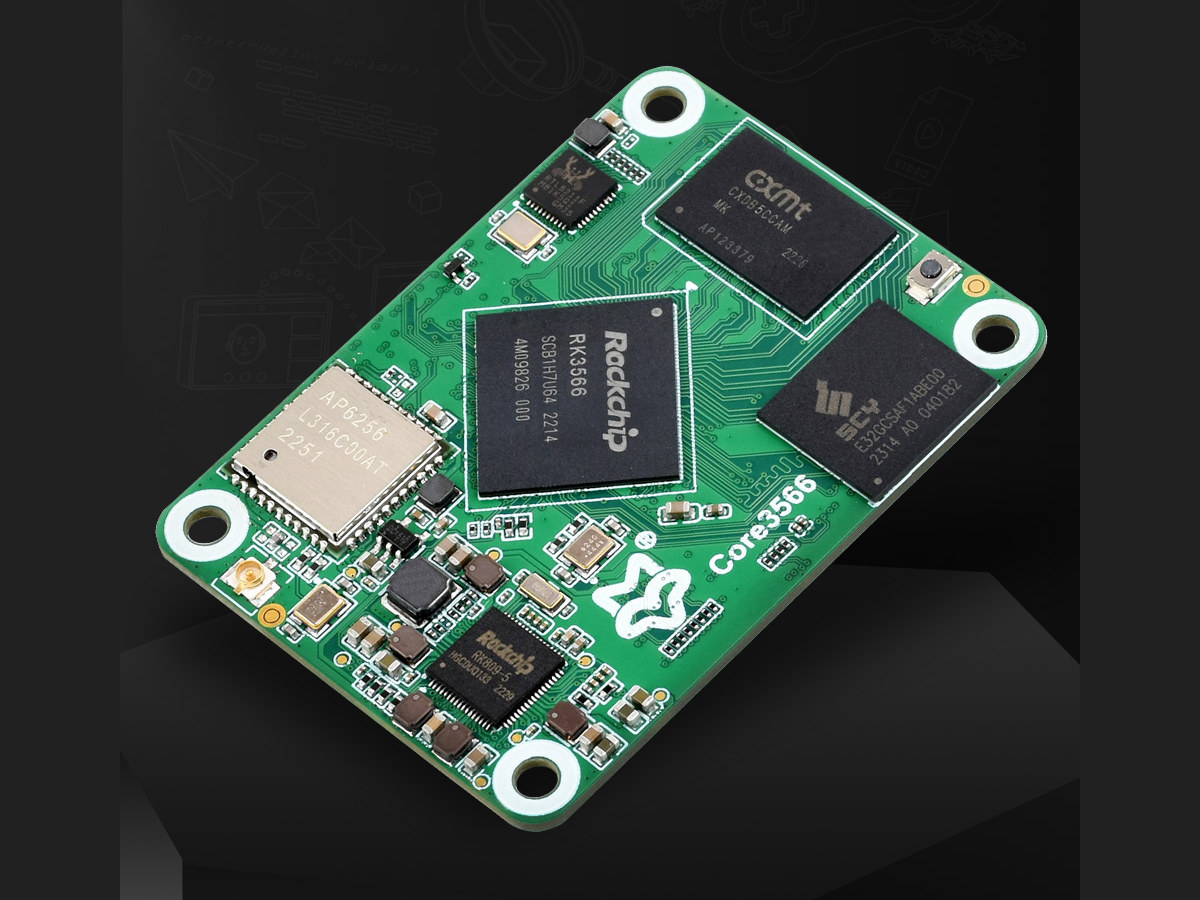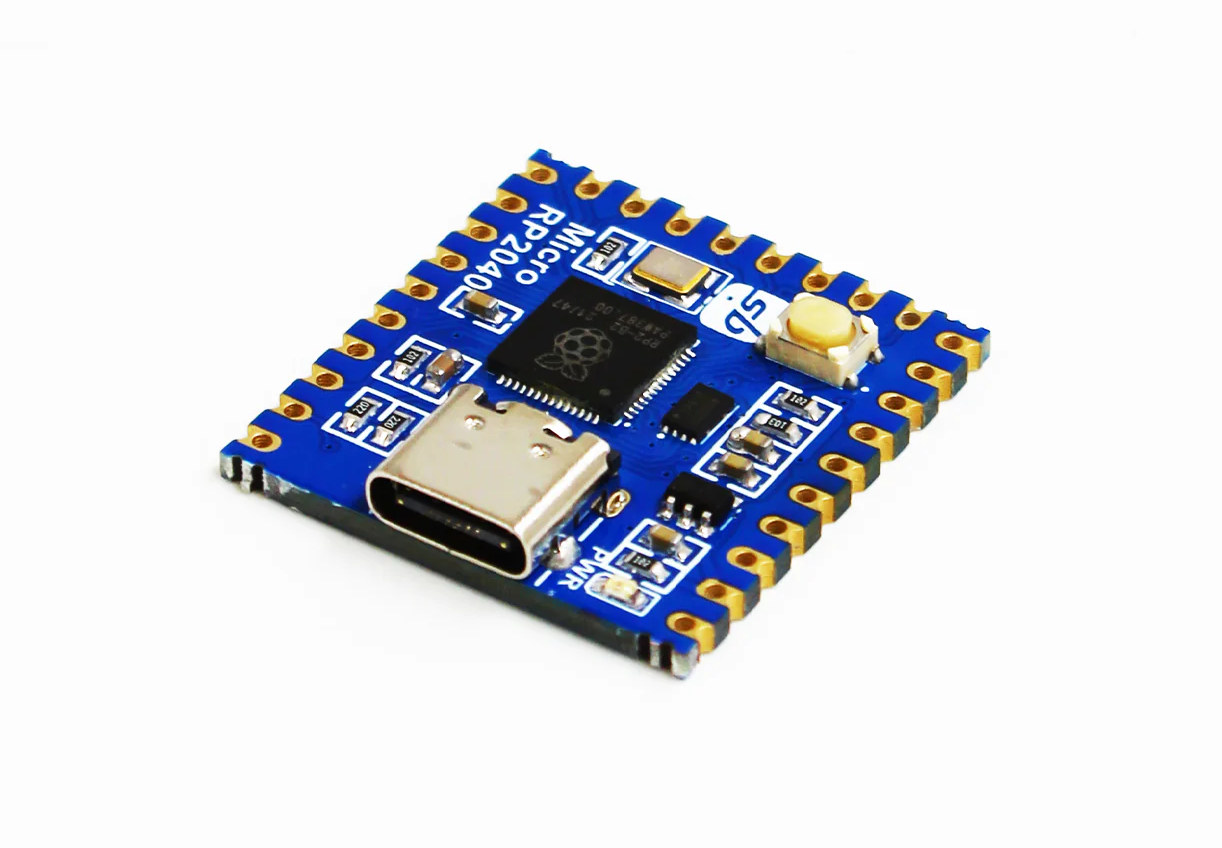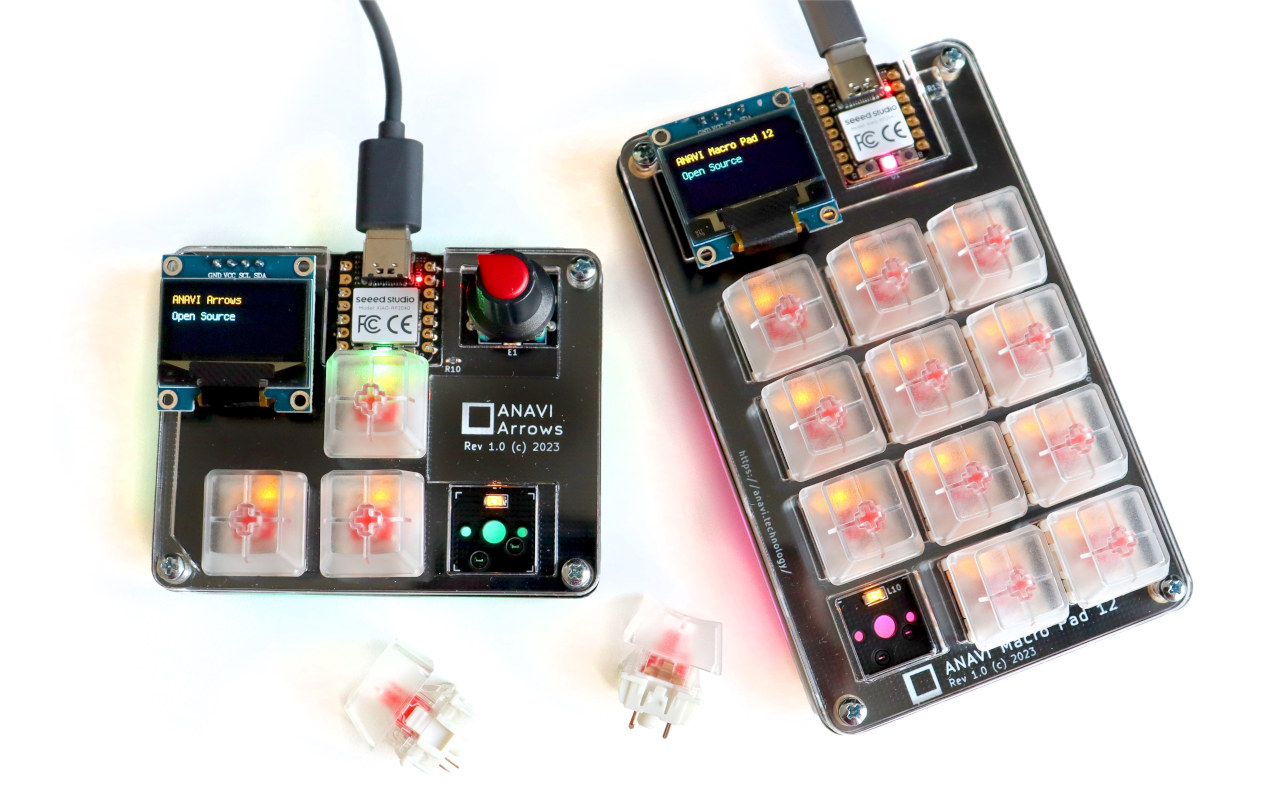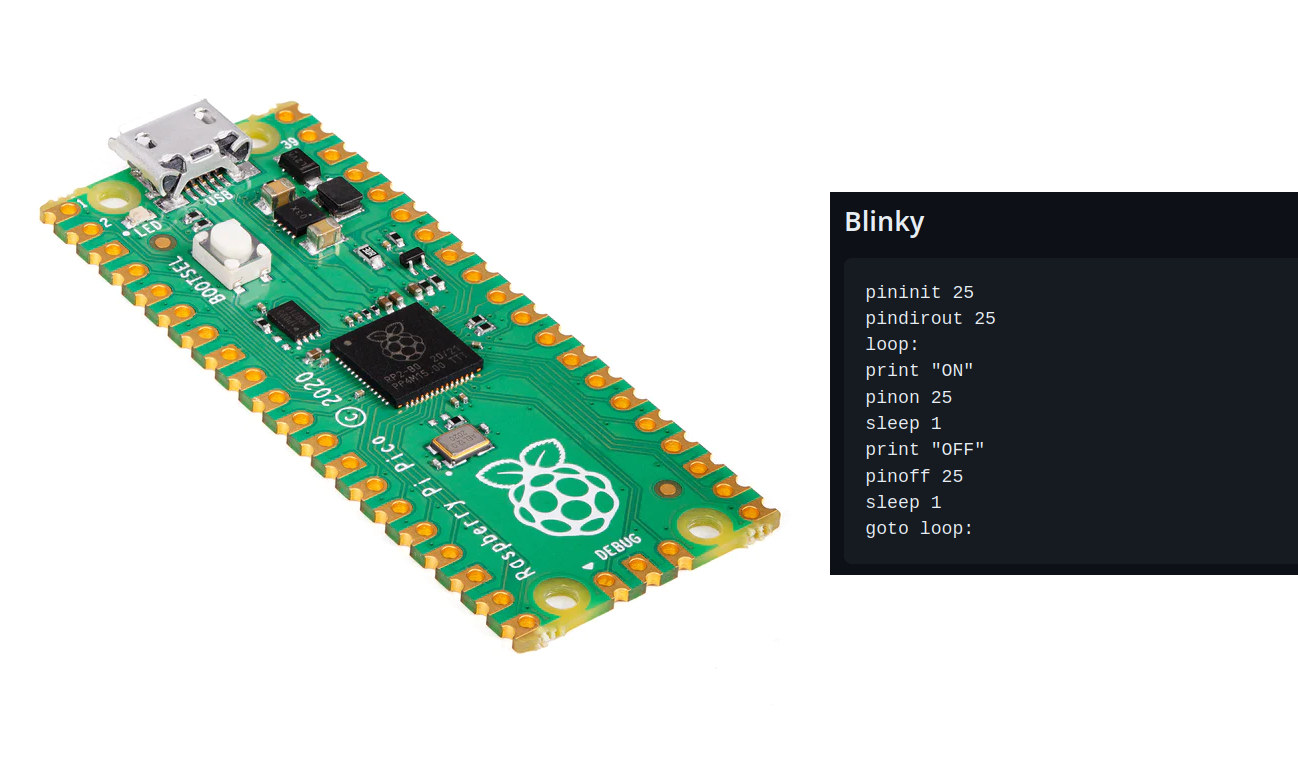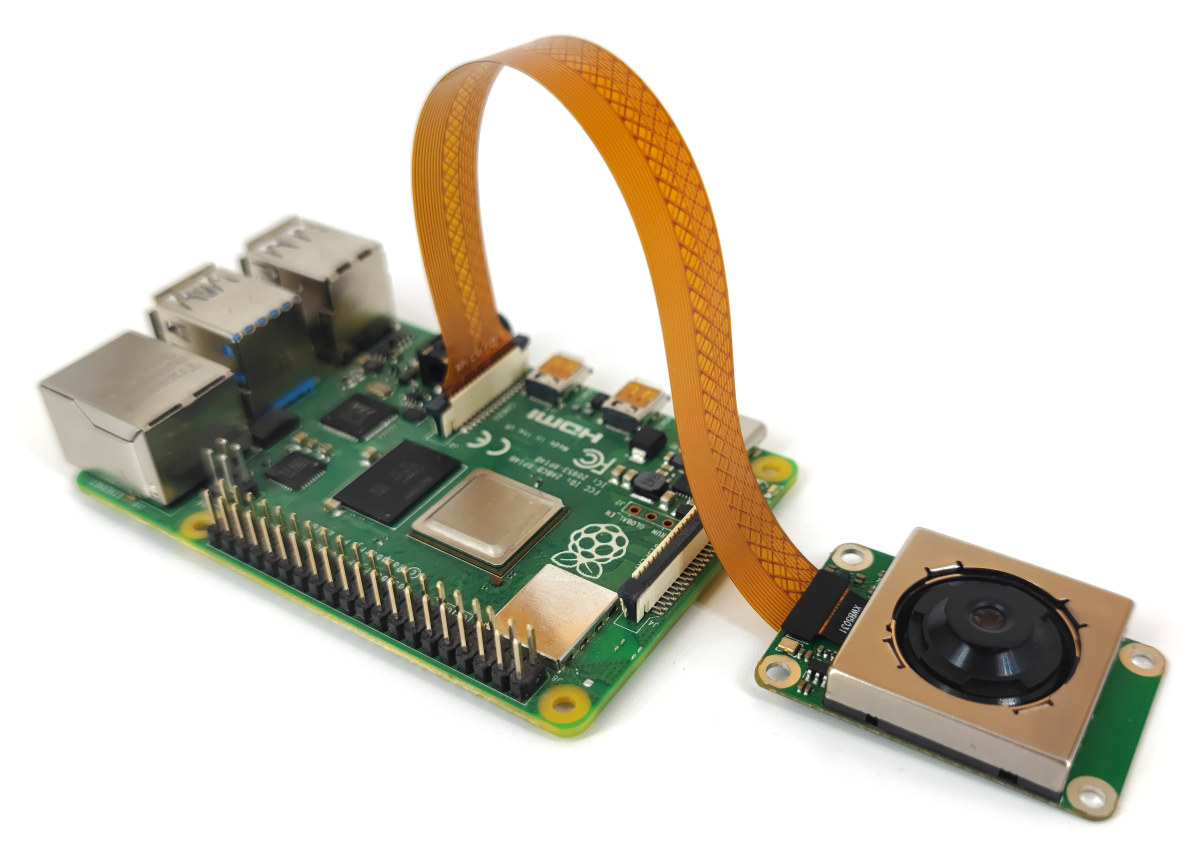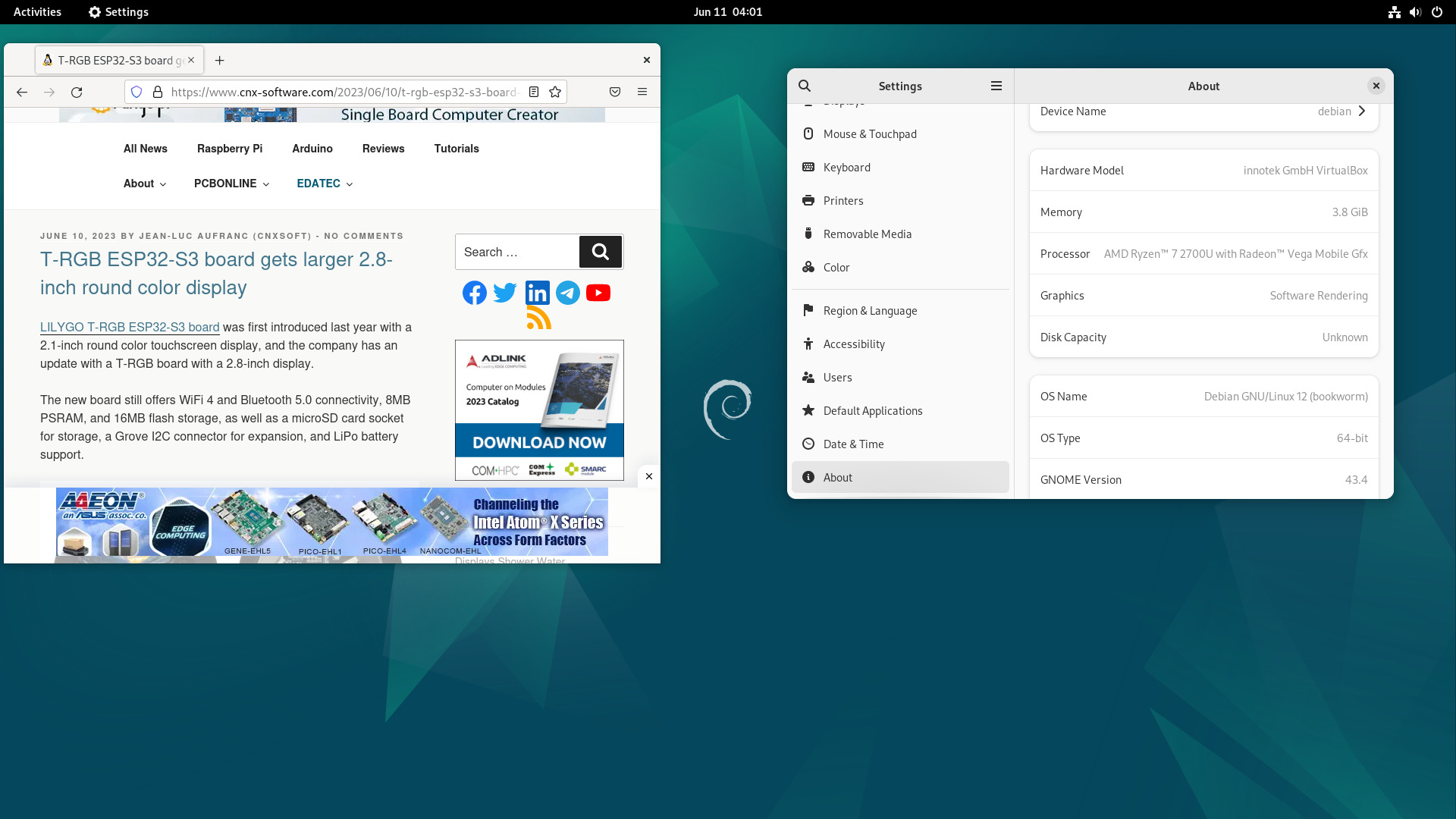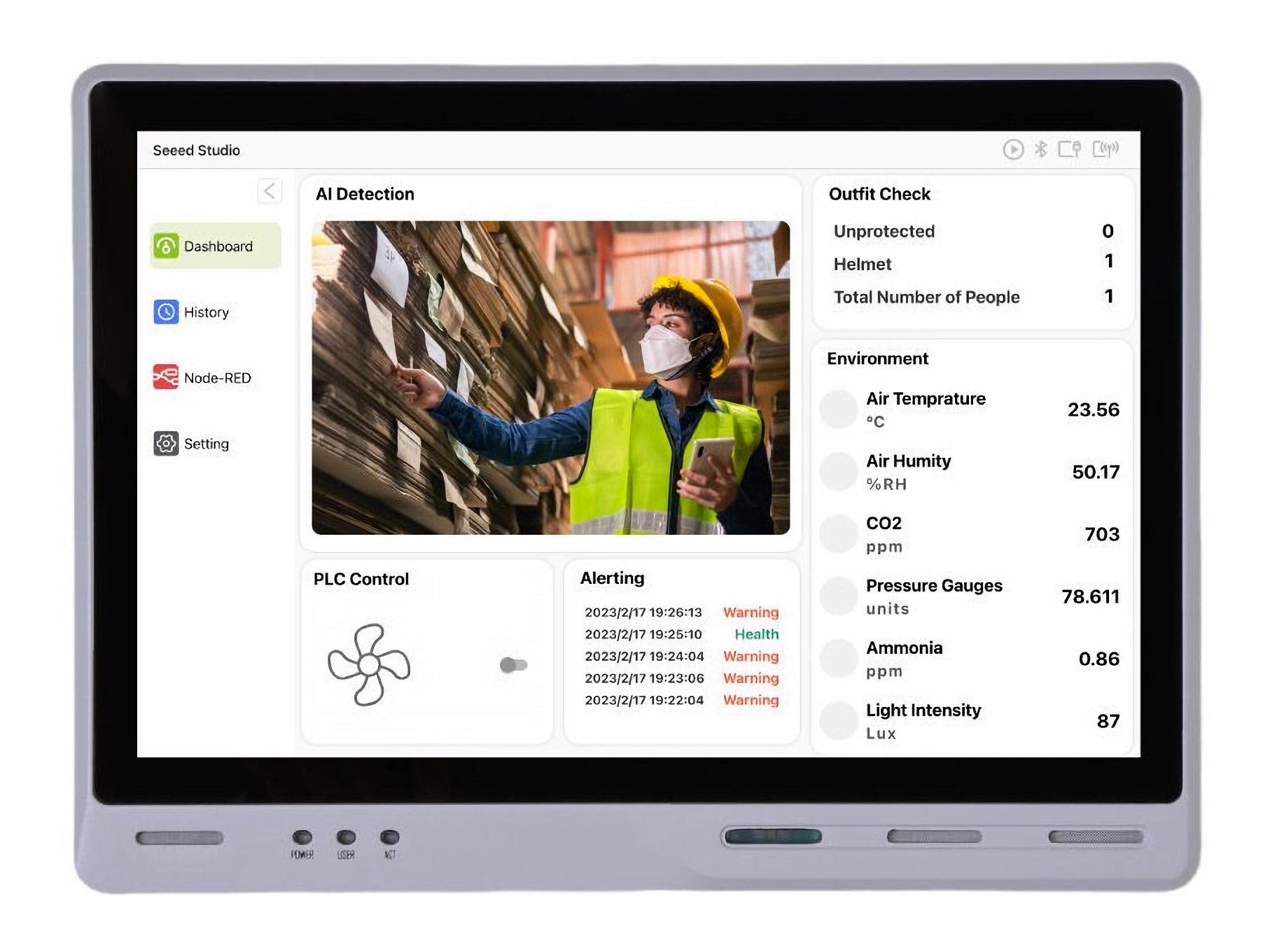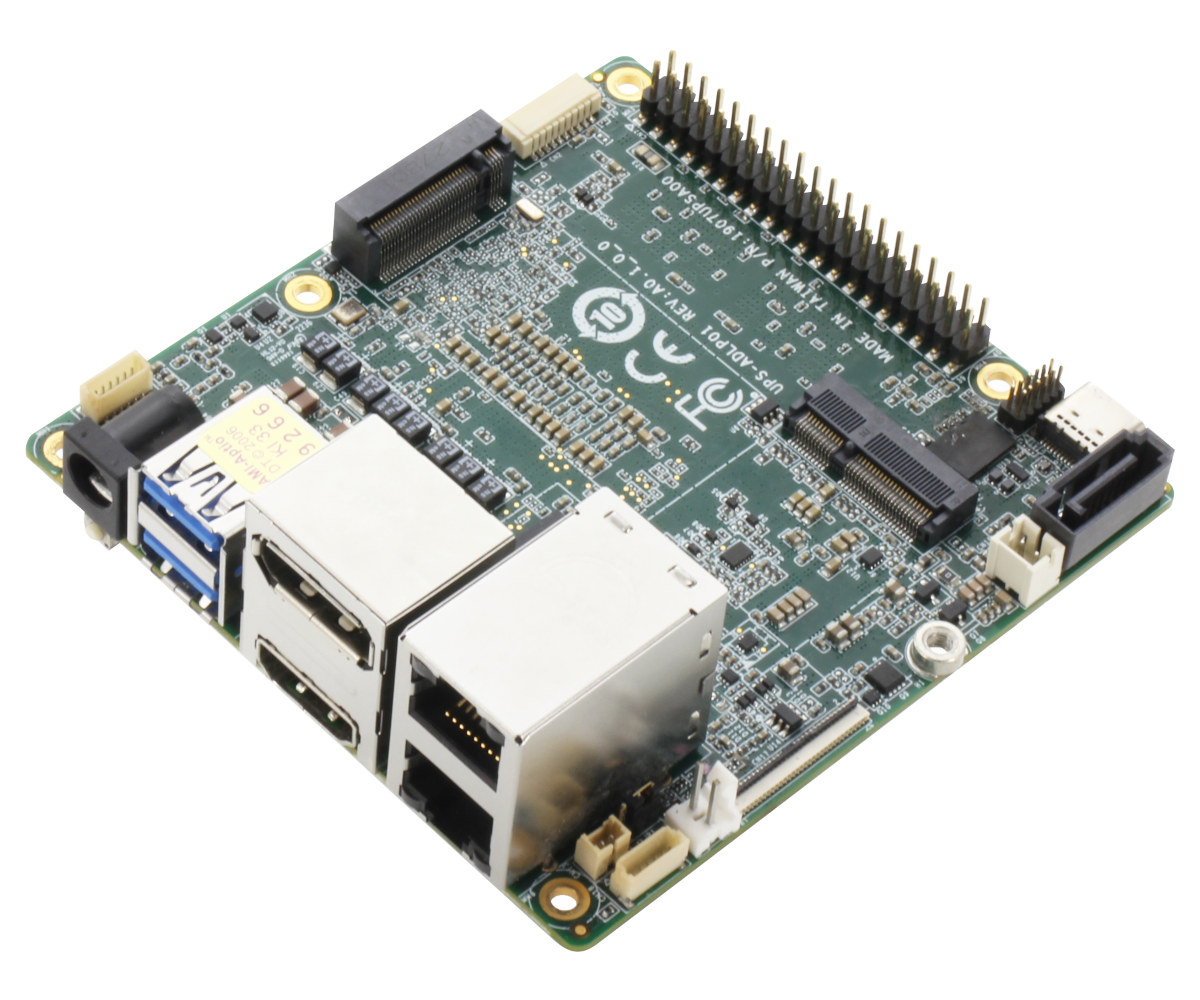We’ve already seen Rockchip RK3566 system-on-modules that follow the Raspberry Pi Compute Module 4 with the likes of Pine64 SOQuartz and Radxa CM3. But there’s at least one more Raspberry Pi Compute Module 4 alternative based on the RK3566 SoC with the LuckFox Core3566 going for as little as $23.99. I found out about the new module after checking out the upcoming Orange Pi Compute Module 4 (another CM4 alternative based on RK3566), and the LuckFox Core3566 is offered with 2GB or 4GB RAM, an optional 32GB eMMC flash, and an optional WiFi 5 and Bluetooth 5.0 module. LuckFox Core3566 specifications: SoC – Rockchip RK3566 quad-core Cortex-A55 processor up to 1.8 GHz with a 32-bit RISC-V MCU, an Arm Mali-G52 GPU supporting OpenGL ES 1.1/2.0/3.2, OpenCL 2.0, Vulkan 1.1, a 0.8 TOPS NPU for AI acceleration System Memory – 2GB to 4GB LPDDR4 Storage – Optional 32GB eMMC module Wireless module […]
Micro RP2040 is a tiny Raspberry Pi RP2040 module with a USB Type-C port, 28 castellated & through holes
SB Components’ Micro RP2040 is a tiny module based on the Raspberry Pi RP2040 Arm microcontroller with up to 23 GPIOs and a USB Type-C port for easy powering and programming. Ever since the Raspberry Pi RP2040 dual-core Arm Cortex-M0+ microcontroller was released, companies have been making tiny modules based on it. Some come with a USB Type-C port such as the Pimoroni Tiny 2040 and the Adafruit QT Py RP2040 boards, while others focused on providing a smaller form factor for soldering only with design such as the RP2040 Stamp or the minuscule 12x12mm Femto module. The Micro RP2040 module comes with a USB-C port and more I/Os than competing modules thanks to a slightly larger 25 x 24.95mm design. Micro RP2040 specifications: MCU – Raspberry Pi RP2040 dual-core Cortex-M0+ microcontroller @ up to 133 MHz with 264kB of SRAM Storage – 2MB QSPI flash USB – USB Type-C […]
ANAVI launches CircuitPython-programmable Macro Pad 12 & Arrows mechanical keyboards (Crowdfunding)
ANAVI Technology has launched two more open-source hardware mechanical keyboards based on the Raspberry Pi RP2040 microcontroller, equipped with an OLED display, and programmable with CircuitPython: the ANAVI Macro Pad 12 with 12 keys and the ANAVI Arrows with four keys and a rotatory encoder. The new mechanical keyboards follow ANAVI Macro Pad 10 & Knobs input devices equipped with the same Seeed Studio XIAO RP2040 MCU module running the KMK firmware written with CircuitPython, but with different form factors and features. ANAVI Macro Pad 12 specifications: MCU module – Seeed Studio XIAO RP2040 with Raspberry Pi RP2040 dual-core Cortex-M0+ microcontroller @ up to 133 Mhz with 264KB SRAM, 2MB SPI flash, USB Type-C port Keys – 12x Gateron red, linear, non-clicky mechanical switches and transparent keycaps with yellow LED backlighting Display – OLED display connected to I2C slot (can be replaced with another I2C module) Host interface – USB […]
PiccoloBASIC – A BASIC interpreter for the Raspberry Pi Pico board
PiccoloBASIC is an open-source BASIC interpreter for the Raspberry Pi Pico development board that’s based on “uBASIC: a really simple BASIC interpreter” by Adam Dunkels and relying on Arm’s LittleFS fail-safe filesystem for microcontrollers. If my memory serves me well, my first computing experience was at school using a Thomson TO7 computer that we programmed with BASIC. I don’t think the language is still used in practical applications, but we can still see some BASIC projects pop up from time to time such as a BASIC interpreter for the Arduino Zero boards. Gary Sims, owner of the Gary Explains YouTube channel, has now ported a BASIC interpreter to the Raspberry Pi Pico. The project is still work in progress, but currently implemented features include: Let, if, print, for, goto, gosub String variables (let z$=”hello”) Floating point numbers and variables (let z#=1.234) Builtin functions [zero, randint, not, time] Sleep, delay, […]
8K 50MP camera module targets NVIDIA Jetson, Raspberry Pi, and RK3588 boards (Crowdfunding)
RBTS.co’s C50M camera module is equipped with the same 8K 50MP Samsung ISOCELL GN2 image sensor found in the upcoming Google Pixel 8 Pro smartphone but targets the maker market with support for NVIDIA Jetson, Raspberry Pi, and Rockchip RK3588 boards. With high-resolution and quick focusing ability, this camera sensor is designed for drones, machine vision, and industrial automation applications such as automated optical inspection and preventive maintenance, and the large 1.4μm pixels of the Samsung ISOCELL GN2 sensor are said to make the camera work well in low-light conditions. C50M camera module specifications: Effective Resolution – 8,160 x 6,144 (50MP) Pixel Size – 1.4μm (2.8μm with 12.5MP binning) Optical Format – 1/1.12″ sensor Color Filter – Dual Tetrapixel RGB Bayer Pattern Frame Rate – 30fps @ 50MP, 120fps @ 4K and 480fps @ FHD ADC Accuracy – 10-bits Chroma – Tetra Auto Focus – Dual Pixel Pro (PDAF); range: […]
Debian 12 “Bookworm” released with Linux 6.1
Debian 12 “Bookworm” operating system has been released with an update to Linux 6.1 LTS and a new non-free-firmware repository making it possible to separate non-free firmware from the other non-free packages. This follows the Debian 11 “Bullseye” release in August 2021, and the version of Debian will serve as the base for other Linux operating systems such as Ubuntu and derivates, Raspberry Pi OS, and so on. Debian 12 can be downloaded on a choice of desktop environments, namely Gnome 43, KDE Plasma 5.27, LXDE 11, LXQt 1.2.0, MATE 1.26, and Xfce 4.18. Bookworm includes a total of 64,419 packages many of which have been updated the to latest version. Nine architectures are supported by Debian 12 “Bookworm”: 32-bit PC (i386) and 64-bit PC (amd64) 64-bit ARM (arm64) ARM EABI (armel) ARMv7 (EABI hard-float ABI, armhf) little-endian MIPS (mipsel) 64-bit little-endian MIPS (mips64el) 64-bit little-endian PowerPC (ppc64el) IBM System […]
reTerminal DM – A Raspberry Pi CM4-powered 10.1-inch HMI controller
Seeed Studio’s reTerminal DM is an upgrade to the Raspberry Pi CM4-powered reTerminal with a larger 10.1-inch touchscreen display and a greater range of features and interfaces for various industrial applications. Described as a “Panel PC, HMI, PLC, IIoT Gateway all-in-one device”, the new reTerminal DM notably supports 12V-24V variable DC input and optionally PoE power input, its front panel is rated IP65 for protection against liquids and dust, a range of wired and wireless connectivity options are offered, and it also includes some serial and digital input and output interfaces. reTerminal DM specifications: SoM – Raspberry Pi Compute Module 4 with Broadcom BCM2711 quad-core Cortex-A72 processor @ 1.5 GHz, up to 8GB RAM, up to 32GB flash Storage – Optional M.2 NVMe SSD via M.2 2280 Key-M slot Display – 10.1-inch display with 1280 x 800 resolution, 10-point capacitive touchscreen 400-nit brightness, 170° H/V viewing angle Video Output – […]
UP Squared i12 is a compact Alder Lake-P single board computer
AAEON’s UP Squared i12 is a single board computer with the same dimensions as the UP Squared (Apollo Lake) and UP Squared V2 (Elkhart Lake) boards, and mostly the same ports layout, but powered by a more powerful 12th generation Intel Alder Lake-P processor from a Celeron 7305E up to an Intel Core i7-1270PE. The board comes with up to 8 or 16GB LPDDR5 memory, SATA and NVMe storage support, triple 4K display support through HDMI, DisplayPort and USB-C interfaces, dual Gigabit Ethernet, a few USB boards, and some wafers and headers such as a Raspberry Pi-compatible GPIO header. UP Squared i12 specifications: 12th generation Alder Lake-P SoC: Intel Core i7-1270PE 12-core/16-thread processor @ 3.30GHz / 4.50GHz (Turbo) with 96EU Intel Xe graphics – PBP: 28W, up to 64W MTP Intel Core i5-1250PE 12-core/16-thread processor @ 3.20GHz / 4.40GHz (Turbo) with 80EU Intel Xe graphics – PBP: 28W, up to […]


